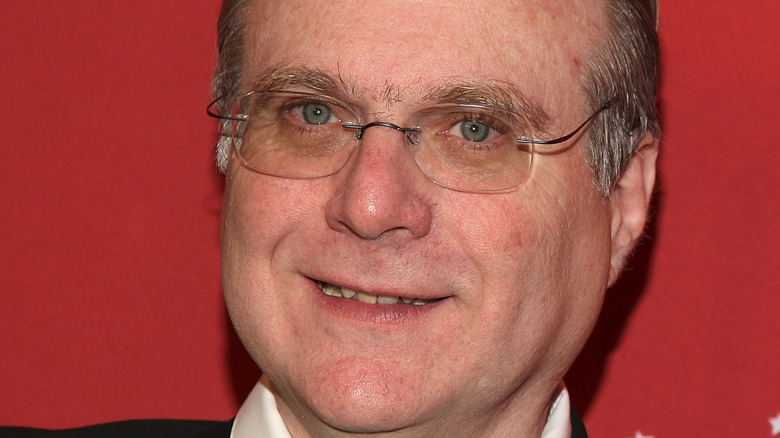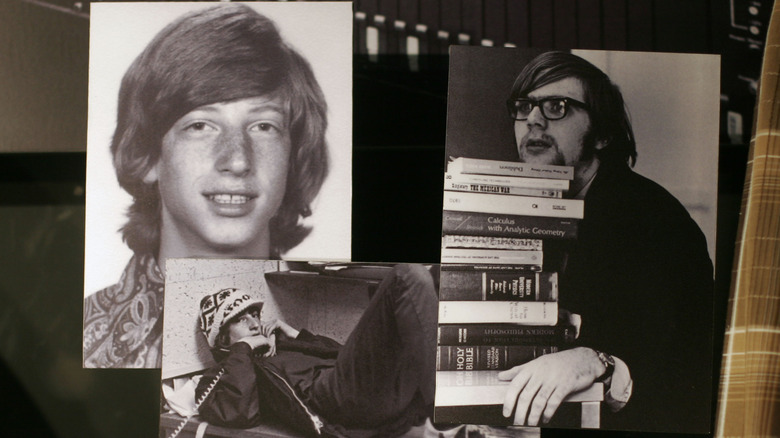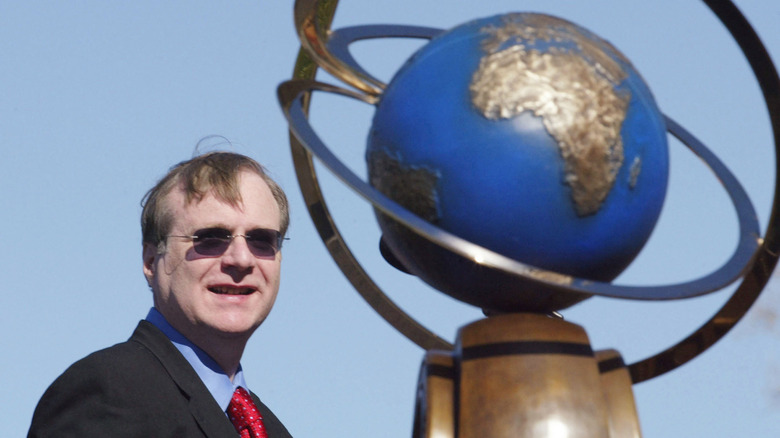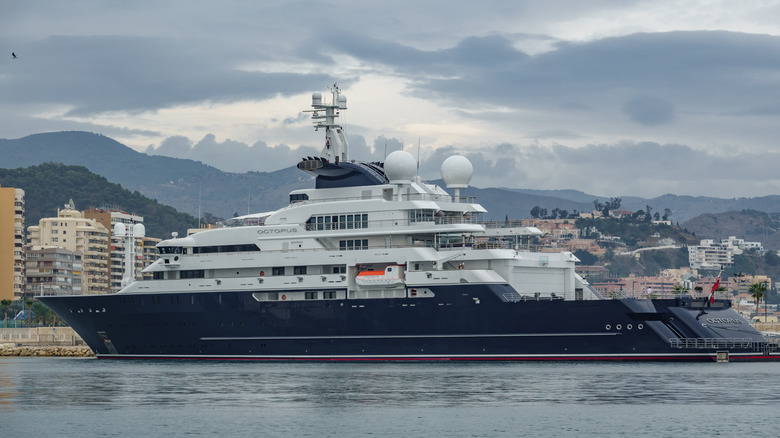The Tragic 2018 Death Of Microsoft Co-Founder Paul Allen
Paul Allen needs no introduction. In 1975, at age 22, the Washington State University dropout founded Microsoft Corporation — a global software giant — with childhood friend and 19-year-old Harvard University dropout Bill Gates. Microsoft is credited with bringing personal computing closer to the masses and paving the way for future innovations in software design (via Insider).
Allen resigned as Microsoft's chief technology officer after he was diagnosed with Hodgkin lymphoma seven years later. According to GeekWire, his deteriorating relationship with Bill Gates may have also fuelled his decision to leave the tech firm he built from scratch. In his 2011 memoir "Idea Man," Allen claimed Gates conspired to dilute his stake in Microsoft and portrayed himself as the brain behind the conglomerate. "I was the idea man, the one who'd conceive of things out of whole cloth," Allen wrote, per The Wall Street Journal. "Bill listened and challenged me, then homed in on my best ideas to help make them a reality."
He launched multiple business ventures, established a charitable organization, and bought a couple of sports teams before his non-Hodgkin lymphoma diagnosis in 2009. According to TMZ, Allen died of septic shock in 2018, almost three weeks after revealing on Twitter that his cancer had returned. Per Fortune, an emotional Gates said on Allen's tragic death, "Paul was a true partner and dear friend. Personal computing would not have existed without him."
He continued working until the end
According to the Daily Mail, the Seattle-born billionaire's death certificate listed septic shock, immunosuppression, cardiomyopathy, and acute kidney injury — life-threatening complications of Allen's rare cancer — as the exact cause of his death. Septic shock is a potentially fatal medical condition that can result in a sudden drop in blood pressure, impaired breathing, stroke, and multiple organ failure (via Healthline).
Per the Daily Mail, the three-time, 36-year cancer survivor didn't let the scary diagnosis and debilitated health affect his morale, passion, or work. "I will continue to stay involved with Vulcan, the Allen Institutes, the Seahawks and Trail Blazers, as I have in the past," he said. "I am very grateful for the support I've received from my family and friends. And I've appreciated the support of everyone on the teams and in the broader community in the past, and count on that support now as I fight this challenge."
A visionary who invested in wide-ranging endeavors
In 1986, three years after quitting Microsoft with 28% shares, Paul Allen founded Vulcan Inc. and used his multi-million personal fortune to build a $20-billion business empire. He invested in the Hollywood studio DreamWorks SKG, a $1-billion real estate portfolio (via The Seattle Times), a TV and film production company named Vulcan Productions, and the first crewed space rocket called SpaceShipOne (via Inc.).
To promote research in STEM fields, Allen established the Allen Institute for Brain Science, the Allen Institute for AI, and the Allen Institute for Cell Science. He also founded Stratolaunch Systems, which built the world's largest plane (nicknamed "Roc") with a wingspan of 385 feet (via Space.com). The technologist also invested part of his billions in discovering sunken vessels. In March 2018, Allen's research vessel Petrel found the wreckage of the USS Lexington, an aircraft carrier sunk in the Coral Sea during World War II, about 500 miles off the eastern Australian coast (via CNBC).
According to The Wall Street Journal, he became a philanthropist and gave away more than $2 billion to combat climate change, elephant poaching, the Ebola virus, and homelessness through the Paul G. Allen Family Foundation.
A life well lived
"We all get caught up in the rhythm of our lives, and we lose our way, we lose our balance. This is something I realized when I was going through my cancer treatment," Paul Allen said (via Healthline). "I was thinking that I had been working too hard and that there were things I really wanted to do in life that I had put off. I wasn't going to put them off anymore. I'd go skiing and scuba diving — two things I had always wanted to try."
Allen was a skilled guitarist and a talented songwriter. As he was navigating the arduous journey, he founded the Museum of Pop Culture, built a recording studio on his yacht, and released a rock album titled "Everywhere at Once" (via the Los Angeles Times). He possessed two super luxurious mega-yachts — the $325 million 414-feet Octopus and the $110 million 301-feet Tatoosh (via CNN).
A passionate sports enthusiast, Allen owned the NBA's Portland Trail Blazers and the NFL's Seahawks teams. He was also an avid art collector and owned some of the greatest works of art worth over $1 billion at the time of his death, per ArtNet. "To live with these pieces of art is truly amazing," Allen told Bloomberg. "I feel that you should share some of the works to give the public a chance to see them."



